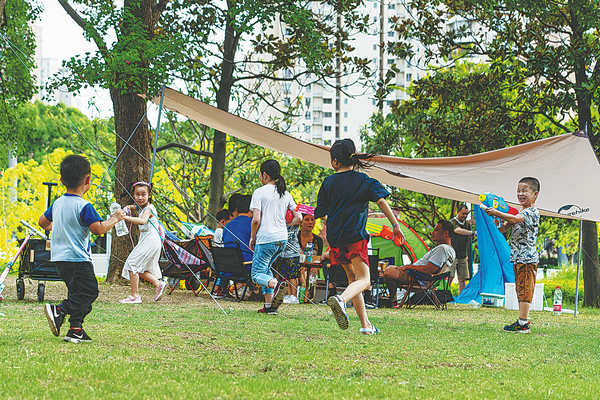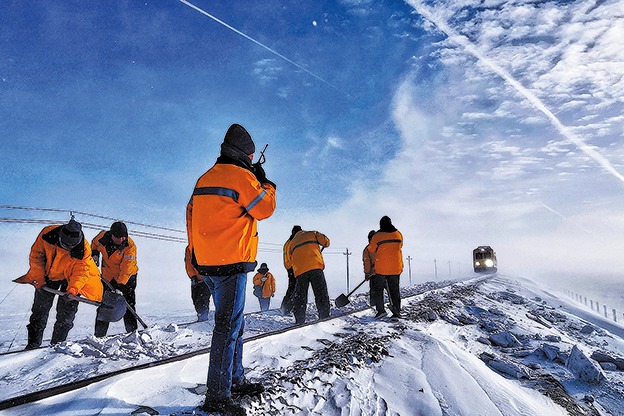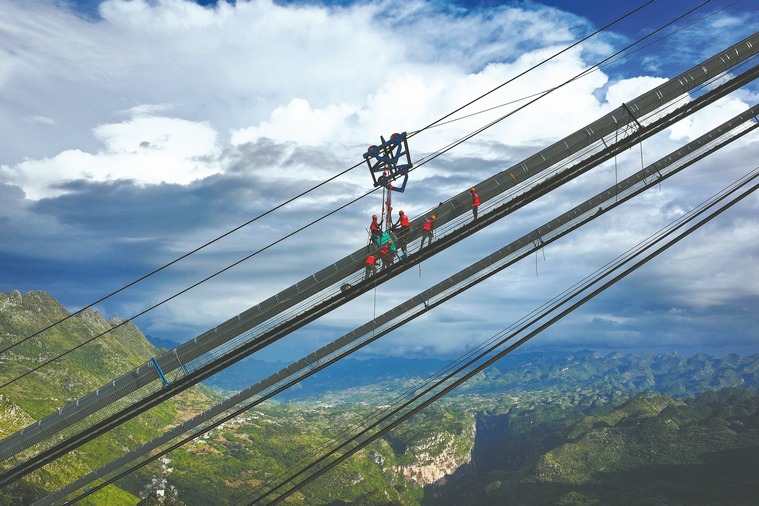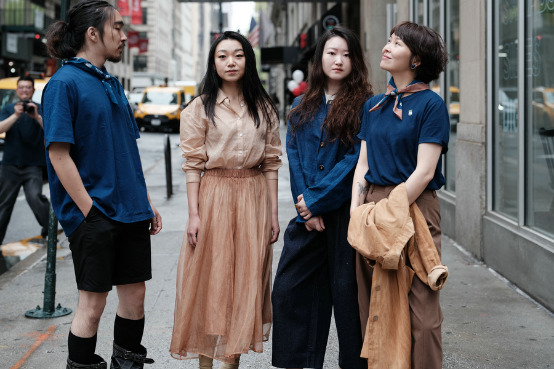Tents find new city sites to attract more campers


The craze for camping and picnics this summer is growing, as hordes of people flock to parks, lakesides and forests to get the most of the outdoors now that the COVID-19 situation has significantly improved.
But people aren't just pitching tents in remote scenic locations. Many are doing so right in the heart of the city, on the patios of restaurants and terraces of shopping malls, combining the experience with decorative lights and fancy foods.
"Urban 'glamping' (glamorous camping) is now the most popular activity in Shanghai," says a Shanghai-based travel blogger named Iris Liu. "This has much to do with the latest COVID-19 outbreak that saw the city impose strict protocols that limited mobility in the past months."
On the evening of July 1, Liu visited the rooftop garden on the fifth floor of a wing of Shanghai Tower where a pop-up "glamping "event, complete with an open-air cinema, was taking place. The photos she uploaded of the open-air film-watching experience on social media platform Xiaohongshu, where she has more than 50,000 followers, quickly received many inquiries.
Aware of the camping trend, many shopping malls, parks and restaurants have been organizing related events to attract customers. The Bund Financial Center, for example, rolled out a 10-day event at its plaza from June 25 to Monday, providing a novel camping experience near the Bund. At the Aegean Place Shopping Center, a similar camping festival kicked off on July 1. The event, which also features performances and activities for children and pets, runs through August. Manner Coffee, a domestic coffee chain, has also set up tents at its branch located along the Xuhui River.
Into nature
The majority of camping enthusiasts in the city, however, are heading to the city's idyllic suburbs where campsites have been mushrooming over the past two years.
Zhou Dayu, a travel industry professional with Zhoumo Hotels, surveyed more than 20 campsites around Shanghai recently. She found that most of the sites were fully booked during the weekends.
Zhou then picked 10 campsites to recommend to her followers on WeChat. The video blog she made quickly received thousands of likes and was reposted.
"Real camping may not be as pleasant as it looks as there are mosquitoes and sometimes the weather is hot," she says. "As such, many campsites also provide other housing options with air conditioning. Those are more friendly for camping novices."
According to Zhang Yi, owner of three campsites in Qingpu that are located near Dianshan Lake, all his camping spots were booked out over the past few weeks. The next available date for a site is in mid-July.
Zhang says his camping offerings are centered on satisfying people's demand for experiences in nature. Zhang's Yacht Club and Resort, for example, offers canoeing, yachting, paddling, barbecue, dining and accommodation in forested areas.
"It is more comfortable than traditional outdoor activities like trekking. Families come in groups, young people always bring their friends and companies come for team building," Zhang says. "When the city was reopened after the latest outbreak, our tickets were sold out within 24 hours."
Zhang is not surprised by the overwhelming reception.
"We expected people to crave spending time in nature after being locked down for two months," he says.
Camping has also proved to be a highly popular parent-child activity. According to a report published by Mafengwo, a travel service and social networking platform, around 44 percent of those who went camping last year were parents.
Meanwhile, in Chongming district's Changxing Island, eco-farm Qianxiaoju has been promoting summer camping and offering activities, such as fishing for crayfish, farm tours, barbecues and fruit-picking.




































